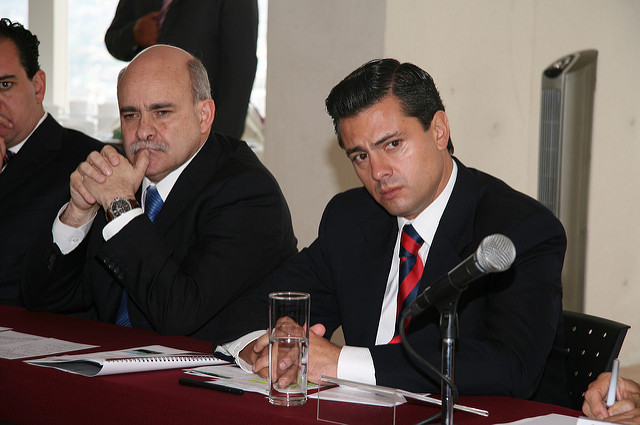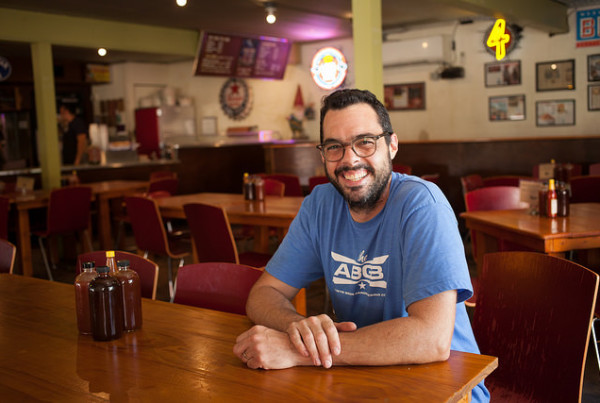You’d have to be buried under a rock to not know that there’s a presidential election going on. What isn’t always as obvious is that behind every candidate there is a giant team of individuals working to create the image we see: speechwriters, campaign strategist, people running social media accounts, photographers.
A Bloomberg Businessweek story tells the story of a man that may have been one of the most influential and discreet political staffers in the past decade – Andrés Sepúlveda. Sepúlveda, who is Colombian, claims that he was hired to rig elections throughout Latin America for almost a decade. He told his story to Jordan Robertson, a Bloomberg reporter who worked on this investigation for nine months with two colleagues.
Sepúlveda’s work wasn’t election rigging in the traditional sense –like vote buying and ballot box stuffing – but through digital tactics like social media smear campaigns and political espionage, in the form of spying on opposing candidates through email and cell phone records. Most of the time, the candidates themselves had no idea what was going on: marching orders were given to Sepúlveda and his team through political strategists.
“An interesting finding of this reporting was that he said he hardly ever bothered with the candidates themselves,” Robertson says. “(Sepúlveda) said they don’t know anything, their strategists know everything. So getting their email, getting (opposing candidates’) smartphone traffic, learning what they re going to do next, even before some of their staffers know.”
The operation wasn’t just a hacker in a dark basement. Sepúlveda had his own legion of “employees” and offered various tiers of services.
“This was a business, for that price he hired teams of hackers that had various specialties. They would typically operate out of Bogotá and they would perform operations,” Robertson says. “Sometimes those were hackings, sometimes they were smear jobs, but this was kind of a professionalized operation that worked in conjunction with this political strategist and his consulting firm.”
That political strategist is J.J. Rendón, a man that’s been characterized as the “Karl Rove of Latin America.” He’s a consultant originally from Venezuela –now living in exile in Miami – who has worked for multiple presidential campaigns in Latin America. Sepúlveda told Robertson and his colleagues that most of his work was done on the payroll of Rendón, a claim Rendón denies.
“(Rendón) had been hired for years for these campaigns, and according to Andrés Sepúlveda and some of the documentary evidence we have is Andrés was on J.J.’s payroll and hired to … organize these hacking teams, and to create and facilitate these hacking operations,” Robertson says. “And this is not a service that was advertised on (Rendón’s) website – he does many things – but according to our reporting, hacking and social media smears and things like that were a key part of these campaigns, because they were effective.”
If this all sounds like something that’s only happening in foreign countries with corrupt governments and could never touch a nation like the United States – don’t be so sure. Sepúlveda said that he was certain that similar tactics are being employed in elections here in the U.S.
“Part of his rationale for that is that every single election he did in Latin America, he always knew there was somebody on the other side,” Robertson says. “He couldn’t prove it, he couldn’t see them, but he could see their work. He said they were always there. He said think about it this way – the United States is the most powerful country on the planet. This is the most important election in the world, potentially, and there’s just too much at stake for there not to be dirty tricks going on.”
So while Sepúlveda’s account only calls out Latin American governments specifically, Robertson says its implications reach much further.
“Until now, we haven’t seen a concrete example of what this looks like in the real world,” Robertson says. “We really are just scratching the surface, because this is one person, apparently working for one consultant in one region of the world, so (Sepúlveda’s) point is: you’d be naive to think this isn’t happening in the U.S. It may just not look like what you expect it to look like.”















